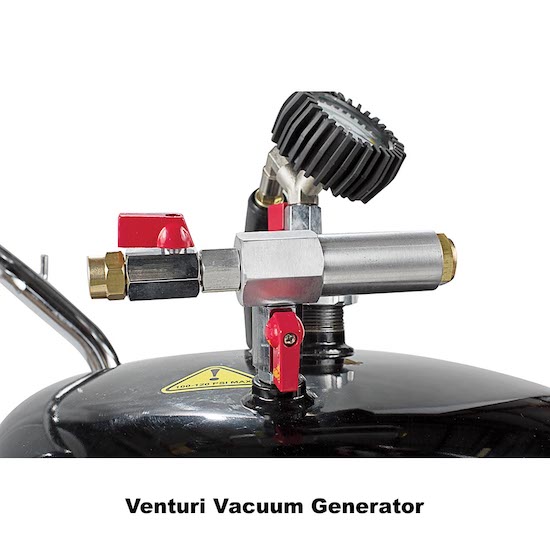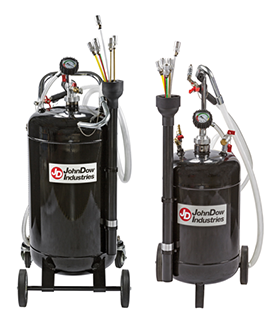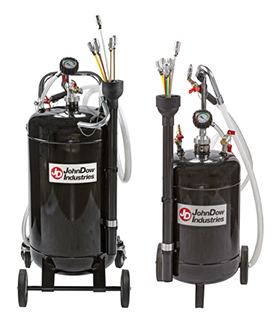A fluid evacuator is designed to remove fluids from a vehicle when conventional draining methods are not practical. But it’s not just oil that you can remove.
Here are more details about how you can use these evacuators with other fluids.

What Fluids Work with Evacuators?
Fluid evacuators can remove used oil and other non-flammable fluids from almost any vehicle using compressed air and an on-board venturi vacuum system. They work best when the fluid is warmed up. To do this, idle the vehicle for a few minutes to get the fluids more viscous, then the evacuator will operate more efficiently.
How Fast does a Fluid Evacuator Work?
The more viscous the fluid, the faster it will evacuate. Warm oil or other fluid will flow faster than cold fluids. Gear oil may take more time to evacuate than a traditional 10W30 weight oil.
How do I Know Which Probe to use with a Fluid Evacuator?
Unfortunately, there is no application data (year, make, and model of vehicle) for fluid evacuators, so you need to make sure you have the snuggest possible fit with the probe going into the dipstick. JohnDow Industries (JDI) Equipment’s fluid evacuators come with six probes that vary in width and length. Our steel fluid evacuators come with adapters for Mercedes, BMW, and Volkswagen.
The Bottom Line
Any non-caustic or non-flammable fluids are okay to use, and the evacuator works best when the fluid is warm.

Features of JDI Equipment’s 6 & 20-Gallon Fluid Evacuators include:
- 6- & 20-gallon capacities
- Heavy-duty steel construction
- Powerful venturi vacuum system
- Easy-to-read vacuum gauge
- 7′ suction hose
- 6 suction probes for most applications
- 3 OE style evacuator adapters
- Convenient storage tube for suction probes
- Wheels & casters are oil & chemical resistant for longer life
- Self-evacuating with 10′ quick disconnect evacuation hose
- Sight tube for quick indication of fluid level
Check out our evacuators here.
